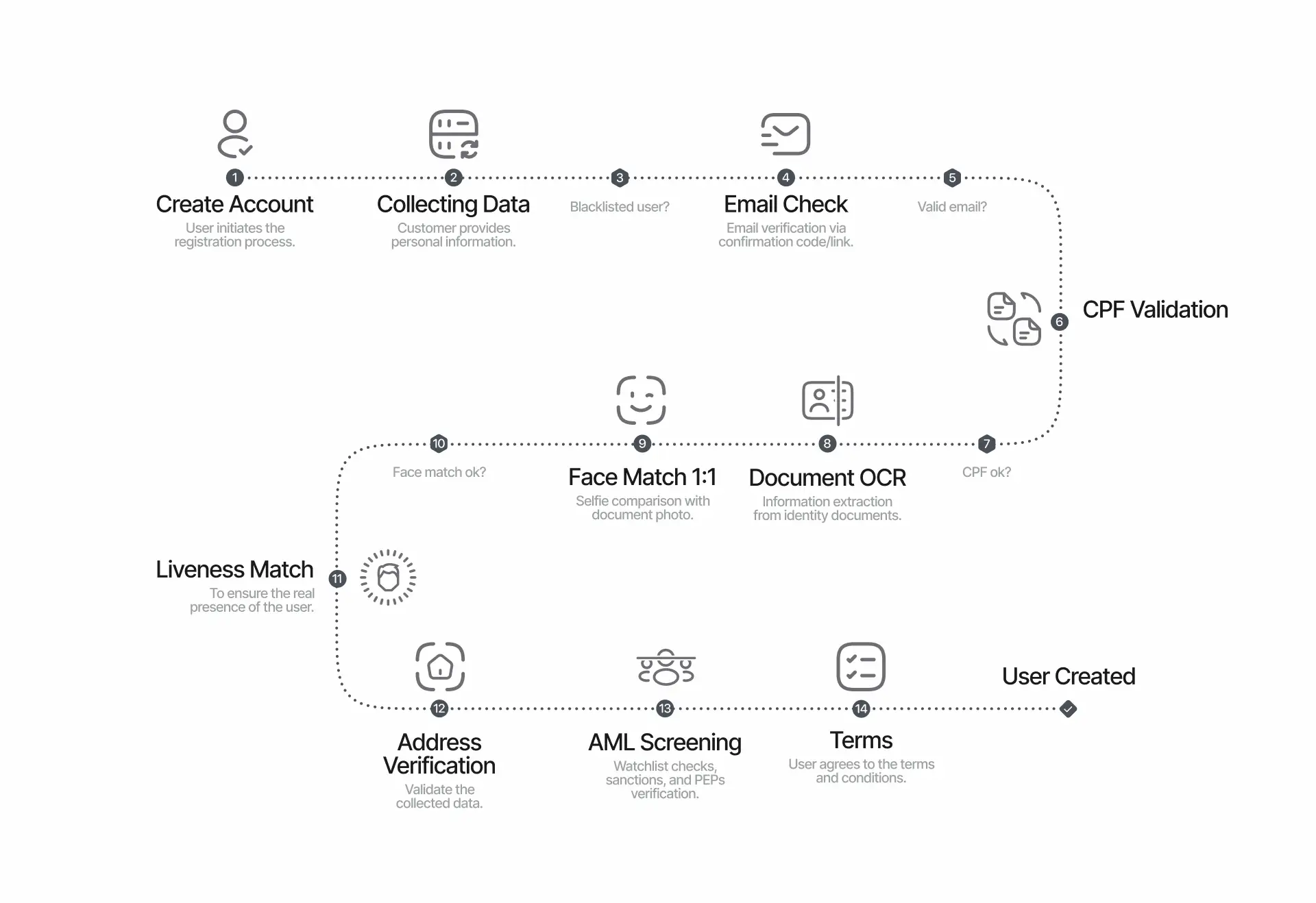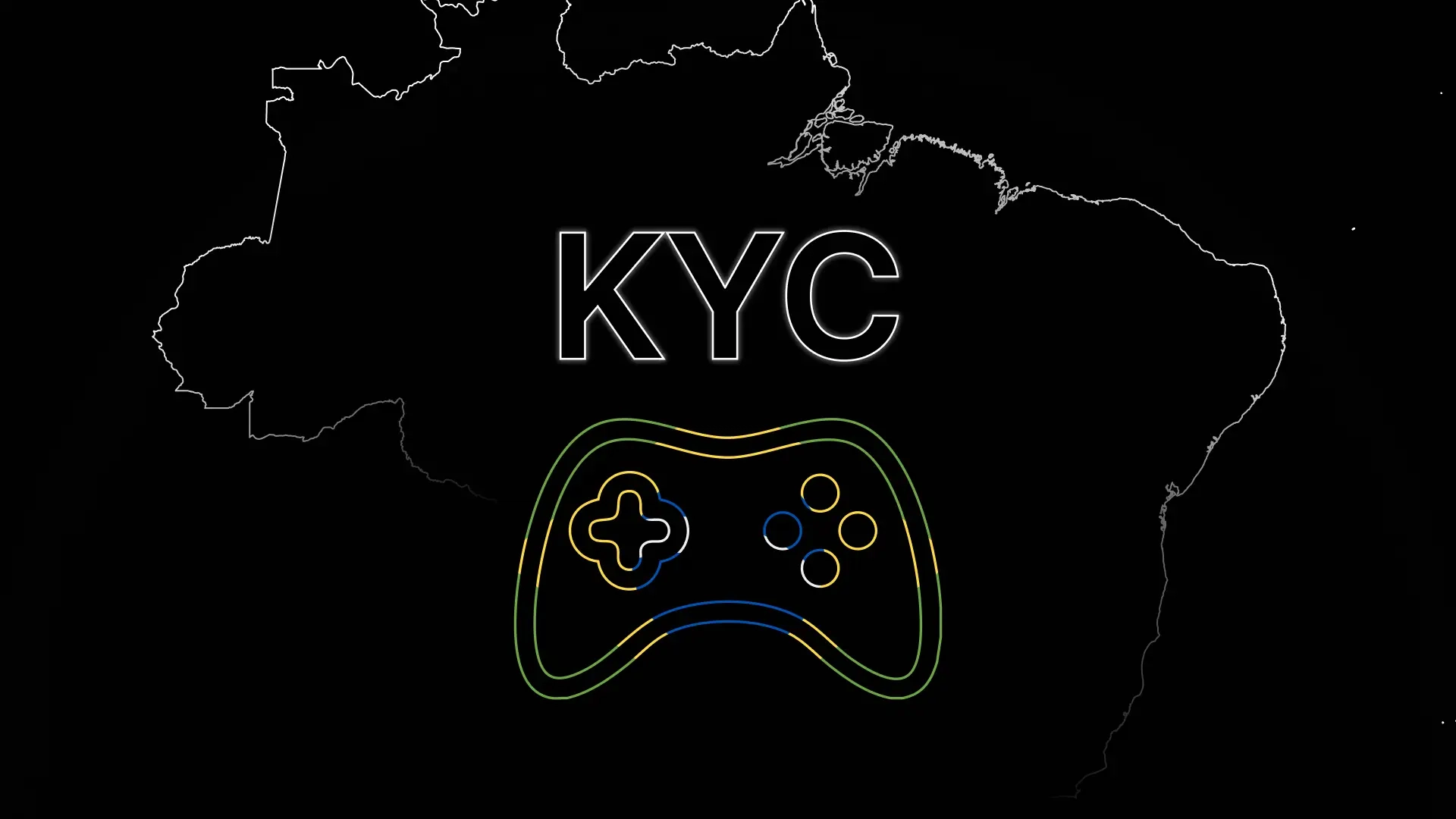Key takeaways
Since January 2025, Brazil regulates iGaming with mandatory licenses and 60+ authorized operators.
KYC in Brazilian iGaming requires CPF, biometrics, documents, and geolocation for every player.
AML compliance is based on Ordinances 1,143, 1,231, and 722, with penalties up to BRL 2,000,000,000.
Didit provides a free, modular, and flexible verification solution compliant with all Brazilian regulations.
Brazil’s iGaming industry has woken up. For many years, only a few forms of gambling—like lotteries and horse racing—were allowed. That changed in January 2025, when the country launched the first comprehensive regulatory framework for online betting and games of chance.
Until then, the government was missing out on a major revenue stream. Estimates suggest the Brazilian market—with 20+ million players and 210 million inhabitants—could generate over BRL 10 billion (about USD 2 billion) in annual tax revenue.
To date, the Brazilian government has issued over 60 licenses for online gaming and sports betting. In addition, lawmakers are expected to debate the potential legalization of land-based casinos in the coming months.
All this makes Brazil one of the most gambling-friendly jurisdictions in LATAM—and a magnet for operators.
So, if your compliance team needs a clear roadmap, or you’re a builder preparing a product and want high conversion without compromising compliance, this article covers every requirement to meet KYC and AML regulations for Brazil’s iGaming sector in 2025.
Why is iGaming a big opportunity in Brazil?
Everything points to massive growth potential in Brazil’s iGaming market for three main reasons:
- Nearly 80% of Brazilians have internet access.
- The middle class is expanding, freeing up income for entertainment.
- Licensing will fully regulate the industry and eliminate gray areas.
Add Brazil’s geographic position within LATAM’s varied regulatory landscape: operators that adhere to identity verification (KYC) protocols and deliver safer, more engaging experiences will have a competitive edge.
Bottom line: in a nation of 200+ million people, where most are passionate about sports and games, Brazil’s iGaming market is poised to be huge.
Key gambling regulations in Brazil: Who regulates what—and who is affected?
On January 1, 2025, this set of regulations governing online betting and games of chance took effect to build a well-regulated iGaming industry.
Highlights include:
- iGaming operators must obtain licenses to operate, meeting strict standards for financial transparency, responsible gaming, and regulatory compliance.
- Advertising restrictions apply. For example, marketing cannot target minors or vulnerable groups.
- Player protection is central—data privacy, fraud prevention, and more.
- International operators must partner with local companies to participate in the market.
Which bodies oversee regulation in Brazil?
The current regulator is the Secretaria de Prêmios e Apostas (SPA) under the Ministry of Finance. SPA runs the authorization process for providers that want to offer iGaming services.
In parallel, the Ministry of Sports created the Secretaria Nacional de Apostas Esportivas e de Desenvolvimento Econômico do Esporte (SNAEDE) via Decree 12,110 of July 11, 2024, focused on integrity and the sports ecosystem—without replacing SPA’s regulatory role.
The government has also floated the creation of a National Betting Secretariat as part of its 2025–2026 regulatory agenda, though no date is set.
Who is covered?
These rules apply to operators offering bets with odds tied to real-world sports events or virtual events in online games.
The law defines online games as “an electronic channel enabling virtual bets on a game whose outcome is determined by a future event,” while fantasy sports are “competitions in a virtual environment based on the performance of real people.”
Player KYC requirements in Brazil (Know Your Player)
Brazil’s KYC policies pursue two goals: financial system integrity and player safety. Know Your Player verification is essential to prevent financial crime and money laundering.
To comply with KYC in Brazil, operators must:
- Identity verification. Brazilian iGaming platforms must verify users via CPF and biometrics. Companies validate identity through the Cadastro de Pessoas Físicas (CPF)—Brazil’s unique taxpayer ID—against government databases. In addition, platforms must deploy biometric technology capable of matching a user’s facial data with images held in government records. Many operators enforce biometric re-authentication at least every 7 days and after ~30 minutes of inactivity.
- Document verification. Organizations must validate government-issued IDs provided by the customer (e.g., passports). This is typically done with AI-powered tools that detect inaccuracies, tampering, or forgeries that humans may miss.
- Geolocation. Knowing where customers are physically located is critical to prevent unauthorized access. Geolocation is enforced at registration and during sessions, typically at ~30-minute intervals.
AML compliance for gambling operators in Brazil
A robust player verification program is the first step toward meeting anti-money laundering (AML) obligations.
To comply with AML in Brazil iGaming, operators must follow:
- Ordinance 1.143, issued by SPA, which governs policies, procedures, and internal controls operators must adopt to prevent money laundering—covering player verification (KYC), bet-pattern analysis, and more.
- Ordinance 1.231, which establishes “Responsible Gaming.” Operators must monitor players to detect behaviors that may indicate gambling addiction. It also sets registration and authentication rules, including mandatory biometrics at onboarding.
- Ordinance 722, which, among other requirements, mandates ISO/IEC 27001 information security certification.
Penalties for non-compliance
Non-compliance can lead to severe financial and reputational damage, including fines of up to BRL 2,000,000,000 (over USD 360 million at current rates), license revocation, and disqualification.

How Didit helps iGaming operators in Brazil
KYC and AML compliance in Brazil isn’t optional—it’s the foundation for operating safely and avoiding massive penalties.
Enter Didit, the fastest-growing identity verification platform in LATAM and Europe.
- Open and developer-first: APIs from day one—no closed integrations or vendor lock-in.
- Modular and flexible: pick only the checks you need for your verification flows.
- Transparent and cost-effective: up to 70% cheaper than legacy providers, with a free, unlimited KYC plan forever.
- Global and compliant: onboard players in 220+ countries in seconds—fully compliant with CPF, mandatory biometrics, and Responsible Gaming policies.
With Didit, you can build a strong verification flow, comply with Brazil’s rules, and deliver a fast, low-friction experience to your players.
👉 Start free today and make sure your Brazil iGaming platform is compliant from day one.

